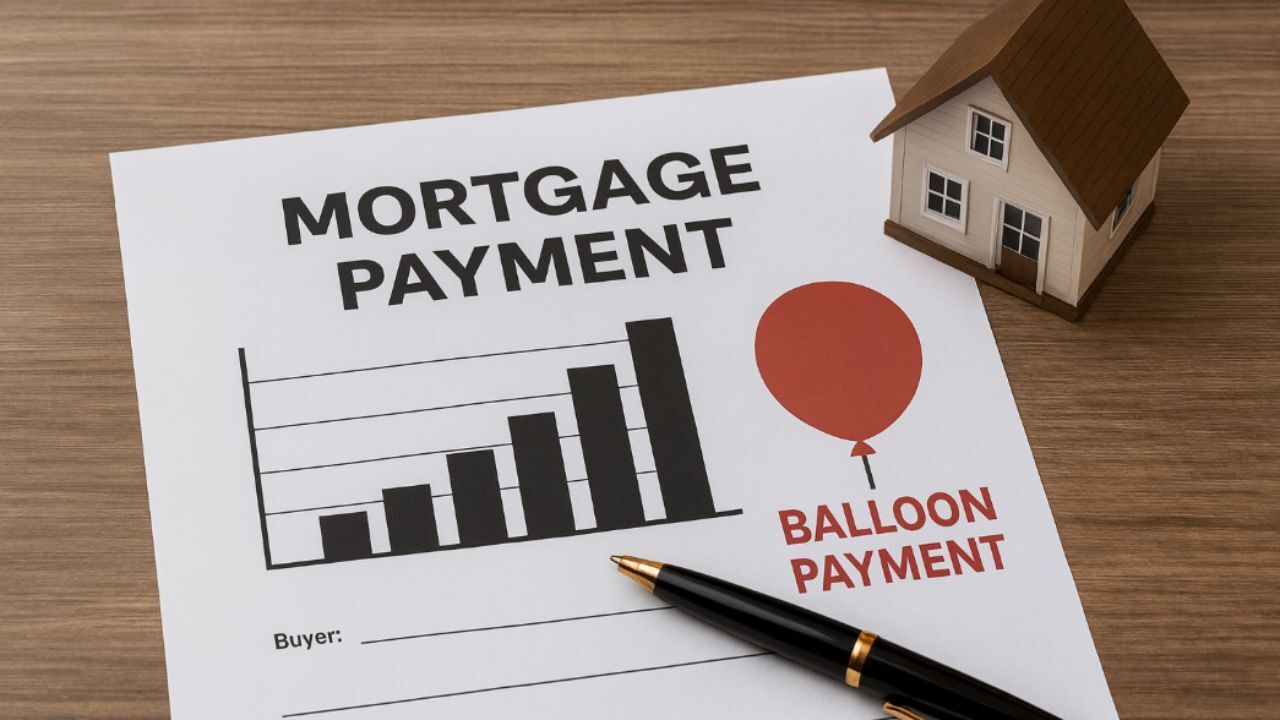 Balloon mortgages are a unique type of home loan that can be attractive to some borrowers, but they also carry specific risks. Unlike traditional mortgages with consistent payments over the life of the loan, balloon mortgages involve smaller monthly payments for a set period, followed by a large lump sum payment at the end.
Balloon mortgages are a unique type of home loan that can be attractive to some borrowers, but they also carry specific risks. Unlike traditional mortgages with consistent payments over the life of the loan, balloon mortgages involve smaller monthly payments for a set period, followed by a large lump sum payment at the end.
Understanding how balloon mortgages work, who they are suited for, and potential pitfalls can help you make an informed decision before committing.
How Balloon Mortgages Work
A balloon mortgage typically has a fixed interest rate with relatively low monthly payments for a predetermined term, often five to seven years. At the end of this period, the remaining balance of the loan becomes due in a single balloon payment. Borrowers often plan to refinance the loan or sell the property before the balloon payment comes due, but this requires careful financial planning and awareness of market conditions.
Who Benefits from a Balloon Mortgage
Balloon mortgages may be advantageous for borrowers who anticipate a significant increase in income, plan to sell the property within a few years, or expect to refinance at favorable rates. Because the initial payments are lower than traditional mortgages, they can provide short-term cash flow relief. Investors or buyers in high-growth areas may also find balloon loans useful for leveraging opportunities.
Risks to Consider
The primary risk of a balloon mortgage is the large payment due at the end of the term. If the borrower cannot refinance or sell the home, they could face financial strain or even foreclosure. Interest rates and property values can change over time, potentially complicating refinancing plans. Borrowers should also account for fees and closing costs associated with refinancing.
Tips for Using a Balloon Mortgage Wisely
Before choosing a balloon mortgage, evaluate your long-term financial stability, income projections, and housing market trends. Work closely with a mortgage professional to plan your exit strategy and ensure you have options for refinancing or selling when the balloon payment comes due. Fully understanding the terms and risks is essential to avoiding surprises.
Balloon mortgages can be a useful financial tool when used strategically, but they require careful planning and risk management. Borrowers who understand the structure and potential outcomes can take advantage of lower initial payments without jeopardizing their financial security.
 When buying a home, mortgage insurance can be an important but often misunderstood component of your loan. It is designed to protect lenders from the risk of borrower default, but it can also impact your monthly payments and overall loan cost. Knowing the types of mortgage insurance, when it is required, and how to manage it can help you make informed decisions and potentially save money over the life of your loan.
When buying a home, mortgage insurance can be an important but often misunderstood component of your loan. It is designed to protect lenders from the risk of borrower default, but it can also impact your monthly payments and overall loan cost. Knowing the types of mortgage insurance, when it is required, and how to manage it can help you make informed decisions and potentially save money over the life of your loan.